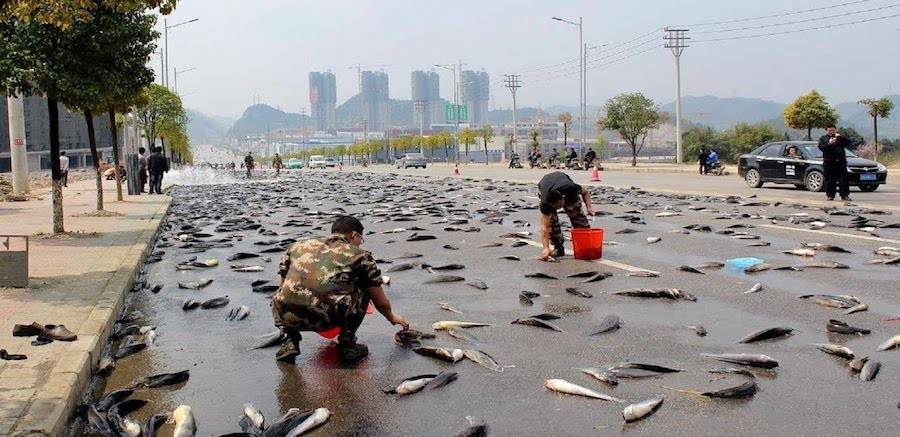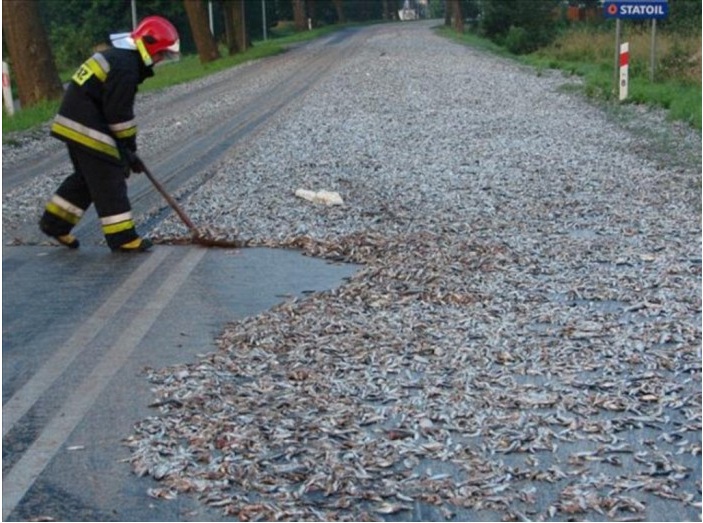
Yoro, Honduras is known for little besides some agricultural exports and, oh yeah, their yearly “rain” of small, silver, fish.

Sometime in the 1850s or ’60s, the Spanish missionary Father Jose Manuel Subirana visited Yoro, Honduras. After he witnessed how poor and hungry the locals were, he prayed for three days and three nights that God would provide them with food. A dark cloud soon formed in the sky and in answer to his prayers, fish began to rain from the sky and feed the town. This was the first recorded instance of the phenomenon of lluvia de pesces or Rain of Fish — at least, that’s how the legend goes.

But according to the modern-day residents of Yoro, the fish rain is very much real continues to this day. Allegedly, smatterings of little silver fish rain from the sky at least once a year in the months of May or June. But do these accounts have scientific roots or more mythological ones?

Records Of The Rain Of FishYoro is one of 18 departments in Honduras. The northern-central region is for the most part impoverished. It has fertile valleys and is largely known for producing grain. But Yoro is most infamously known for its alleged fish rain.The locals say that the Rain of Fish happens every year, sometimes more than once, at the end of the spring. The “lluvia de peces” (literally, “rain of fish”) only occurs after a heavy and devastating storm — that is, when everyone is huddled inside. But when the storm passes, the villagers know to eagerly grab their baskets and head into the streets where sardine-like fish have been littered. Weirder still, those fish have been found to not even be indigenous to Yoro’s local waterways.

The villagers hold that the fish must have come from none other than the sky in a miraculous show of divine intervention. “It’s a miracle,” one local reported. “We see it as a blessing from God.”Indeed, for many, it is a blessing as it is the only time of year that they are able to afford and eat fish.Poverty is still prevalent in the region. Families live in small mud-brick homes. For some, whose usual diet consists of corn, beans, or other crops they have grown themselves, this is the only time of year they get to eat fresh seafood. For them, the Rain of Fish is, indeed, a miracle.“It is a secret that only our Lord knows. It’s a great blessing because it comes from our skies.”